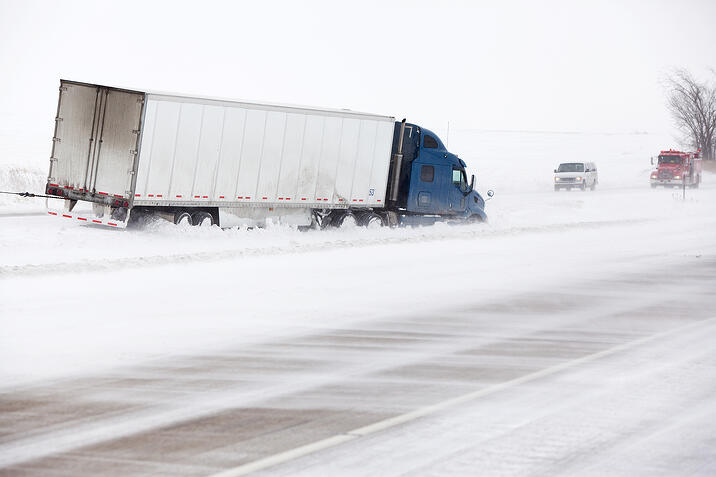
Spoilage and rejected loads are potential risks when hauling refrigerated loads. Various factors can lead to a cargo loss if you are not careful. To help reduce the risk of a loss, read the information below and ask yourself if there are actions you can take to prevent a refrigerated load from spoiling or being rejected.
 PRE-LOADING CHECKS
PRE-LOADING CHECKS
- Is the refrigeration unit operating properly?
- Are the fuel, oil, and coolant levels of the refrigeration unit sufficient?
- Is the thermostat calibrated?
- Are the refrigeration air chutes and ducts properly installed and in good repair?
- Do the trailer doors seal tightly when closed?
- Are the trailer walls free of cracks and holes?
- Is the front bulkhead installed?
- Do floor drains open?
- Is the inside of the trailer clean and odor free?
- Are floor grooves free of debris?
- Are the trailer’s interior height, width, and length adequate for load?
- Is the load properly secured?
- Has the trailer been adequately pre-cooled (or pre-warmed)?
- Does the trailer have proper ventilation?
 DAILY TASKS
DAILY TASKS
- Inspect the vehicle thoroughly before each trip.
- Follow the manufacturer’s recommended maintenance procedures.
- Check the load’s required temperature on the bill of lading.
- Use a pulp thermometer to test the temperature of the product before loading to make certain it matches the required transit temperature.
- Do not accept a load unless the product’s temperature matches the required transit temperature.
- Document any discrepancies on the shipping papers and report the issue before accepting the load.
- Upon delivery, verify and document the temperature of the load on the bill of lading again.
- To avoid temperature fluctuations during loading/unloading, keep the refrigeration unit turned off.
- Ensure the product does not obstruct airflow inside the trailer.
- During stops, monitor the refrigeration unit to ensure it maintains the desired temperature.
- Do not leave temperature-sensitive cargo unattended while parked.
- Utilize a temperature recording device, if available.
- In the event of a vehicle accident while transporting refrigerated products, report the incident immediately to help prevent cargo damage.
As always, you can count on the commercial truck insurance professionals at The Daniel & Henry Company to assist you through challenging claims and all of our insurance, risk management, and safety issues. Contact us today to discuss solutions for your transportation risk management program.


